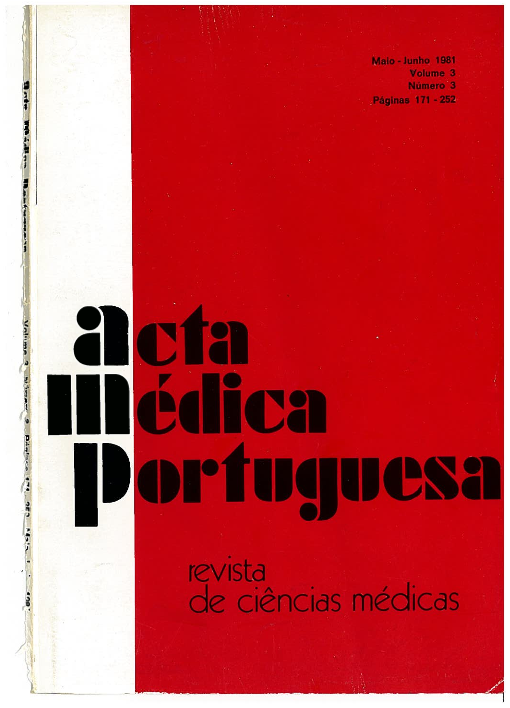Cardiogenic shock - physiopathological basis for diagnosis and treatment.
DOI:
https://doi.org/10.20344/amp.3884Abstract
O choque é um processo evolutivo de insuficiência circulatória aguda, e a sua reversibilidade depende em primeiro lugar dum diagnóstico precoce e de uma terapêutica orientada racionalmente por conceitos de fisiopatologia. Embora o choque cardiogénico implique como factor causal primário uma falência do coração, e importante ter presente a interdependência deste com os outros dois componentes da homeostase circulatória, a volémia e a tonicidade vascular. Sendo várias as causas que podem levar à falência aguda da bomba cardíaca, aquela em que as possibilidades terapêuticas são mais problemáticas, e a da falência contráctil do músculo. A abordagem terapêutica deste problema baseia-se no princípio de que há uma deterioração progressiva do miocárdio condicionada em parte pelos próprios mecanismos de compensação cardiocirculatória e de que é possível, interferir, nestes mecanismos de modo a recuperar zonas funcionalmente deficientes mas ainda viáveis.
Downloads
Downloads
How to Cite
Issue
Section
License
All the articles published in the AMP are open access and comply with the requirements of funding agencies or academic institutions. The AMP is governed by the terms of the Creative Commons ‘Attribution – Non-Commercial Use - (CC-BY-NC)’ license, regarding the use by third parties.
It is the author’s responsibility to obtain approval for the reproduction of figures, tables, etc. from other publications.
Upon acceptance of an article for publication, the authors will be asked to complete the ICMJE “Copyright Liability and Copyright Sharing Statement “(http://www.actamedicaportuguesa.com/info/AMP-NormasPublicacao.pdf) and the “Declaration of Potential Conflicts of Interest” (http:// www.icmje.org/conflicts-of-interest). An e-mail will be sent to the corresponding author to acknowledge receipt of the manuscript.
After publication, the authors are authorised to make their articles available in repositories of their institutions of origin, as long as they always mention where they were published and according to the Creative Commons license.









